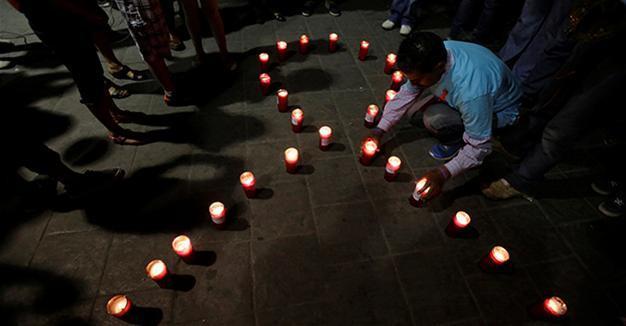Number of AIDS patients on the rise in Turkey
Mesude Erşan – ISTANBUL

REUTERS photo
The number of AIDS patients has been steadily rising in recent years in Turkey, according to statistics recently published by the Health Ministry’s Department of Infectious Diseases.The figures showed that the number of people diagnosed as HIV positive between the ages of 15 and 19 was just eight in 2011, but in 2016 the number had increased to 49.
For those aged between the ages of 20 and 24, the number increased from 62 in 2011 to 276 in 2016.
Experts estimate that the real figures are much higher when undiagnosed HIV carriers are taken into account.
Speaking to daily Hürriyet, a 17-year-old high school student, identified only by the initials K.A. said he found that he was HIV positive on Oct. 13, 2016 after going to a doctor suffering from stomach aches.
K.A., who is sexually active, said he did not know enough about the infection but had found information online.
“The process was very tough for me because the only source was the Internet. All the websites I checked gave me certain periods of time left to live,” K.A. said, adding that he eventually found “appropriate information and support” from the Positive Living Association.
K.A. also said the attitude of his family, school principal and close friends changed after he told them about the diagnosis.
Saying it is easy to find partners through applications on social media, K.A. added that he had a two-year-long relationship before learning he was HIV positive.
“I had two partners after being diagnosed. I told one of them about the issue and didn’t tell it to the other one because we were using protection, so there was no risk,” he said.
He also stressed that there should be more effective sex education at schools.
“One of the biggest problems is the lack of gender education in society and sex education at schools. Reproduction is described only in biology classes. People are not aware of the significance of protection from sexually transmitted diseases [STD]. We talk about sexuality but not protection. I know two other people under the age of 18 who are also HIV positive,” K.A. said.
Positive Living Association General Coordinator Canberk Noyan Harmancı said HIV transmissions through blood transfusions had almost stopped after Red Cross started using advanced testing techniques.
“Transmission from mother to child is also prevented by certain measures. With the decrease in the age of engaging in sexual intercourse, we have started to see HIV infections transmitted sexually in people between the ages of 16 and 18. But because of social taboos, we cannot talk or learn about methods to protect ourselves from the virus,” Harmancı told daily Hürriyet.
Another expert, Professor Ateş Kara from Hacettepe University in Ankara, said unprotected sex is the main reason behind the increase in AIDS among the youth.
“Not using protection, especially among those performing sex for money, causes transmission,” Kara said.
Arda Karapınar, the chairman of the Executive Board of Red Ribbon Istanbul, drew attention to the fact that there are other STDs that are also seen in high levels among the youth.
“Not only HIV, but other diseases like HPV and syphilis are seen in high levels in this age group. The core problem is engaging in sexual intercourse without having enough knowledge, or knowing about protection but not using it,” Karapınar said.
HIV Infection Association head Professor Fehmi Tabak also stated that efforts to raise public awareness of the danger of HIV should continue.
















